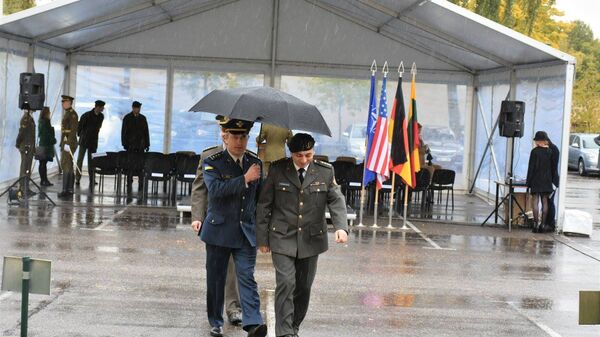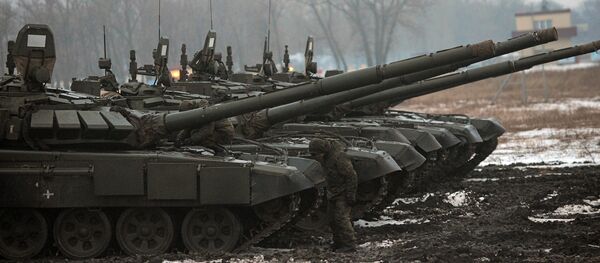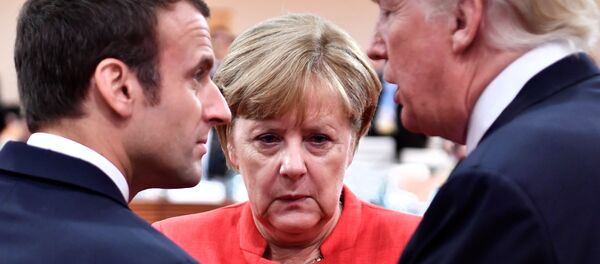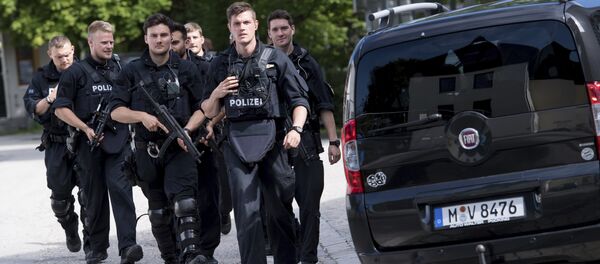The past week has seen important statements by high-level EU officials on the subject of European defense. On Friday, EU foreign affairs Chief Federica Mogherini declared that the world was in "a state of chaos," with the "European way to peace and security" necessitating "a professional army."
A day earlier, German Chancellor Angela Merkel informed her countrymen and women that Berlin could no longer rely on the US defense umbrella, and would have to "take its destiny into its own hands."
According to Gevorg Mirzayan, "the basic message" of such remarks is "all the same," and comes down to the idea that "Europe must be prepared to defend itself by itself, without accounting for America, and as soon as possible."
It's worth recalling, the analyst noted, that the concept of a European army has been discussed since the 1950s, with the idea itself spelled out in the Lisbon Treaty. However, a vigorous and militarily capable NATO, backed by unquestioned American hegemony, meant that the idea would long remain on the drawing board.
Folding Umbrella
"With the arrival of Donald Trump (although not because of him), the situation began to change drastically," Mirzayan noted. "In November 2017, the entire EU, with the exception of Britain, which is in the process of exiting the bloc, Denmark, which chose not to participate, and Malta, whose neutral status is outlined in its constitution, adopted a so-called "Permanent Structured Cooperation on defense and security (PESCO)."
The security project envisions large scale-defense cooperation between EU countries, including the "harmonization" of defense strategies, allocation of military contingents for special operations, readiness to carry out joint missions, and between some countries, projects for common defense infrastructure (such as a European Medical Command and the EUFOR Crisis Response Operation Core project).
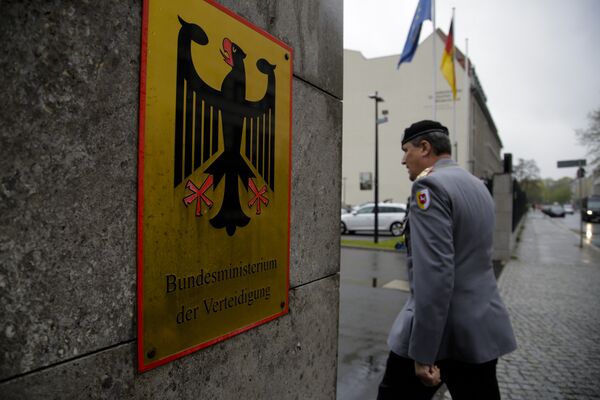
Earlier this year, for example, former German Foreign Minister Sigmar Gabriel discussed Europe's need for a common "power project" to allow the continent to avoid the fate of remaining "a vegetarian with a lot of problems in a world of carnivores."
Aftermath of US Adventures
Just as significant, Mirzayan added, was the fact that many of the security issues now facing Europe are the result of 'American victories' in the Middle East. "It's the Europeans who have faced a flood of refugees from the ruins of Syria and Libya. And it's the Europeans who have suffered the brunt of the terrorist attacks by Daesh (ISIS)*, a group which arose out of the US 'victory' in Iraq, over the past decade."
Other problems include the ongoing instability in Ukraine, a more and more anti-Western Turkey, and the Palestinian-Israeli and Iranian-Israeli conflicts, ready to explode at any moment. It's noteworthy, according to the journalist, that the aggravation of all of these conflicts involves US actions.

The Europeans have tried to soothe their partners in Washington, emphasizing that PESCO is strictly aimed at being a response to local crises, and that it's a project which won't affect the strategic defense of the continent provided by NATO structures. But the US has already warned that it will only support the European defense project so long as it does not "distract from NATO's activities and requirements," and stressed that Washington would be watching PESCO "carefully" to see that it doesn't "splinter" the US-European alliance.
"In any case, the trend is evident. And when the process is brought to its logical conclusion, the main victims will be those countries relying on the outgoing US world order – i.e. the pro-American Eastern Europeans like Poland, and the post-Soviet republics like Georgia and Ukraine looking to come under the NATO umbrella. But by the time they plan to make it in, this umbrella may simply fold up," Mirzayan concluded.
*A terrorist group banned in Russia.
Gevorg Mirzayan is an associate professor at the department of political science at Russian Financial University, and a Rossiya Segodnya contributor. The views and opinions expressed in this article are his own, and do not necessarily reflect those of Sputnik.
